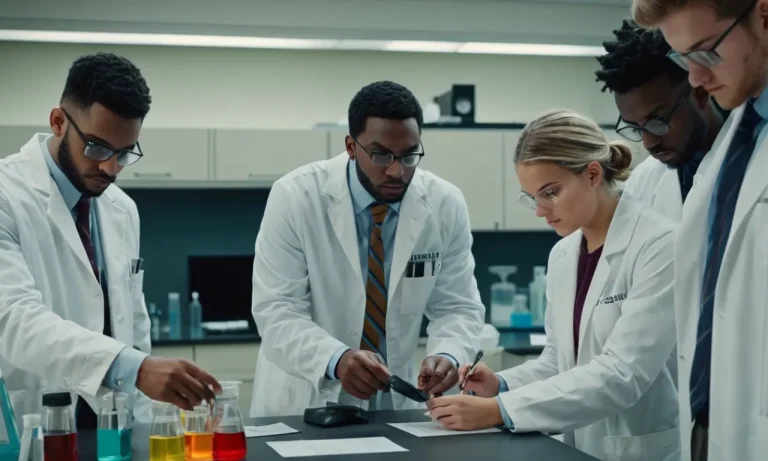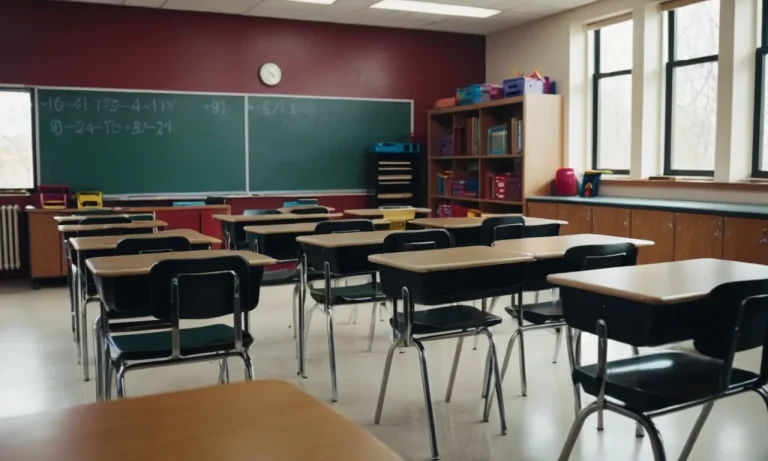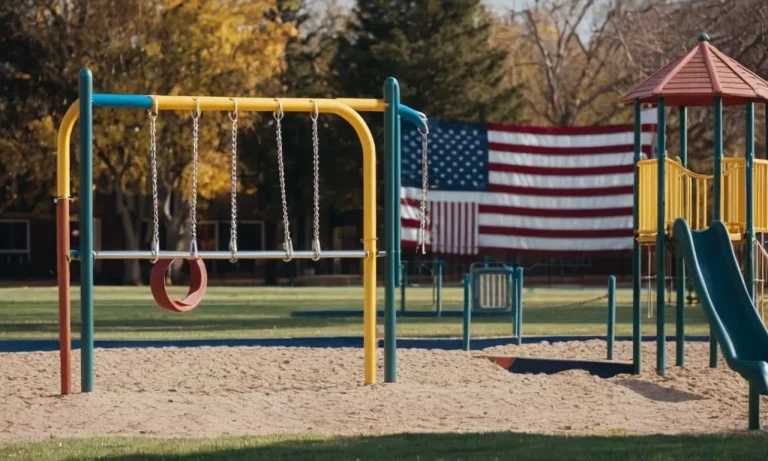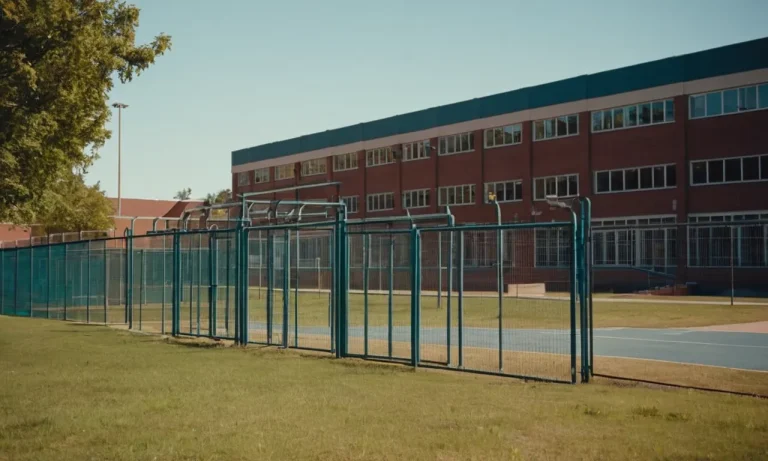For parents of children with speech and language difficulties, ensuring their child receives the necessary support can be a daunting task. Speech therapy plays a crucial role in helping children overcome communication challenges and develop essential skills for academic and social success.
If you’re short on time, here’s a quick answer to your question: Schools are required to provide speech therapy services to eligible students under the Individuals with Disabilities Education Act (IDEA).
However, the specific requirements and services provided may vary depending on the child’s needs and the school district’s policies.
In this comprehensive article, we’ll delve into the legal requirements for schools to provide speech therapy, the eligibility criteria, the types of services offered, and the steps parents can take to ensure their child receives the appropriate support.
Whether you’re a concerned parent or an educator seeking guidance, this article will provide valuable insights into navigating the world of speech therapy in schools.
Legal Requirements for Speech Therapy in Schools
When it comes to providing speech therapy services in schools, there are several federal and state laws that outline the legal requirements. These laws aim to ensure that students with speech and language impairments receive the necessary support and accommodations to achieve academic success.
Individuals with Disabilities Education Act (IDEA)
The Individuals with Disabilities Education Act (IDEA) is a federal law that governs the provision of special education services, including speech therapy, for children with disabilities. Under IDEA, public schools are required to identify, evaluate, and provide a free and appropriate public education (FAPE) to students with disabilities, including those with speech and language impairments.
This includes providing speech therapy services as part of the student’s Individualized Education Program (IEP).
According to the National Center for Education Statistics, in the 2019-2020 school year, approximately 7.3 million students aged 3-21 received special education services under IDEA, which may have included speech therapy services.
Section 504 of the Rehabilitation Act
Section 504 of the Rehabilitation Act is another federal law that prohibits discrimination against individuals with disabilities in programs and activities that receive federal financial assistance, including public schools.
Under Section 504, schools are required to provide reasonable accommodations and services to students with disabilities, which can include speech therapy services.
Students who do not qualify for services under IDEA may still be eligible for accommodations and services, including speech therapy, under Section 504. The decision is based on a comprehensive evaluation and the development of a 504 plan, which outlines the necessary accommodations and services.
State and Local Laws
In addition to federal laws, many states and local jurisdictions have their own laws and regulations governing the provision of speech therapy services in schools. These laws may outline specific requirements, funding mechanisms, and guidelines for implementing speech therapy programs in public schools.
It’s important to note that while the legal requirements may vary across states and districts, the overarching goal is to ensure that students with speech and language impairments receive the support they need to access education and achieve their full potential.
Parents and caregivers can contact their local school district or state education agency for more information on the specific laws and policies that apply in their area.
Eligibility Criteria for Speech Therapy Services
Schools are required to provide speech therapy services to students who meet certain eligibility criteria. The determination of eligibility is based on a comprehensive evaluation process that identifies if a student has a speech or language impairment that adversely affects their academic performance or ability to access the general education curriculum.
Speech and Language Impairments
Speech and language impairments can encompass a wide range of difficulties, including articulation disorders (difficulties producing speech sounds), fluency disorders (stuttering), voice disorders (abnormal vocal quality, pitch, or loudness), and language disorders (receptive or expressive language difficulties).
According to the American Speech-Language-Hearing Association (ASHA), approximately 8-9% of children have some form of communication disorder.
Evaluation Process
The evaluation process typically involves a multidisciplinary team, including a certified speech-language pathologist, who conducts assessments to determine the presence and severity of a speech or language impairment.
The evaluation may include standardized tests, observations, and interviews with the student, parents, and teachers. The team then reviews the results and determines if the student meets the eligibility criteria for speech therapy services under the Individuals with Disabilities Education Act (IDEA).
Individualized Education Program (IEP)
If a student is found eligible for speech therapy services, an Individualized Education Program (IEP) is developed. The IEP is a legally binding document that outlines the student’s specific needs, goals, and the services that will be provided, including the frequency and duration of speech therapy sessions.
The IEP is reviewed and updated annually to ensure that the student’s needs are being met and that progress is being made towards their goals. It’s important to note that the eligibility criteria and services provided may vary across states and school districts, so it’s best to consult with your local education authorities for specific guidelines.
Types of Speech Therapy Services in Schools
Schools are required to provide a range of speech therapy services to students who need them. These services can take various forms, tailored to the individual needs of each student. Here are some common types of speech therapy services offered in schools:
Individual Therapy Sessions
One-on-one sessions with a licensed speech-language pathologist (SLP) are often the most intensive form of speech therapy. These sessions allow the SLP to focus solely on the student’s specific needs and develop a personalized treatment plan.
Individual therapy sessions are particularly beneficial for students with severe speech or language disorders, as they receive undivided attention and can work on targeted goals at their own pace. According to the American Speech-Language-Hearing Association (ASHA), individual therapy sessions can help students improve their articulation, fluency, voice, and language skills.
Group Therapy Sessions
In addition to individual sessions, many schools offer group therapy sessions for students with similar speech or language needs. Group therapy can be an effective way to practice communication skills in a social setting, while also allowing students to learn from and support one another.
These sessions are often led by an SLP and may incorporate fun activities, games, or role-playing exercises to make the learning experience more engaging. According to a study published in the Language, Speech, and Hearing Services in Schools journal, group therapy can be particularly beneficial for students with social communication difficulties or those working on pragmatic language skills.
Classroom-Based Support
For some students, speech therapy services may be provided within the classroom setting. This approach allows the SLP to observe and support the student in their natural learning environment, while also collaborating with the classroom teacher to implement strategies and accommodations.
Classroom-based support can include:
- Modeling and reinforcing correct speech and language patterns
- Adapting instructional materials and activities to meet the student’s needs
- Providing visual aids or assistive technology to support communication
According to the Individuals with Disabilities Education Act (IDEA), classroom-based support can be an effective way to promote language development and academic success for students with speech and language impairments.
Assistive Technology
For students with severe speech or language disorders, assistive technology can be a valuable tool in supporting communication. Schools may provide a variety of assistive devices, such as augmentative and alternative communication (AAC) systems, speech-generating devices, or computer software programs.
These tools can help students express themselves more effectively, participate in classroom activities, and access the curriculum. According to a report by the National Institute on Deafness and Other Communication Disorders (NIDCD), the use of assistive technology in speech therapy can improve a student’s overall communication abilities and quality of life.
😊
It’s important to note that the type and intensity of speech therapy services provided in schools may vary depending on the individual student’s needs, as well as the resources and staffing available within the school district.
However, by offering a range of services, schools can help students overcome communication challenges and achieve their full potential. 👏
Advocating for Your Child’s Speech Therapy Needs
Understanding Your Rights
As a parent, it’s essential to understand your rights when it comes to advocating for your child’s speech therapy needs. Under the Individuals with Disabilities Education Act (IDEA), children with speech and language impairments are eligible for special education services, including speech therapy.
This federal law ensures that all children with disabilities have access to a free and appropriate public education (FAPE) tailored to their unique needs. https://sites.ed.gov/idea/
Collaborating with the School Team
Effective collaboration with the school team is crucial in ensuring your child receives the appropriate speech therapy services. Attend meetings, share your observations, and actively participate in the decision-making process. Building a positive relationship with the speech-language pathologist, teachers, and administrators can help create a supportive environment for your child’s progress.
Don’t hesitate to ask questions and voice your concerns openly. 😊
Requesting Evaluations and Services
If you suspect your child may need speech therapy, you have the right to request an evaluation from the school district. According to the American Speech-Language-Hearing Association (ASHA), early intervention is key to addressing speech and language difficulties.
Once an evaluation is conducted and your child is found eligible, the school must provide the necessary speech therapy services outlined in their Individualized Education Program (IEP) or 504 plan. 👏
Dispute Resolution Options
If you disagree with the school’s decisions regarding your child’s speech therapy services, you have the right to pursue dispute resolution options. These may include mediation, due process hearings, or filing a formal complaint with the state education agency.
While these processes can be challenging, they are in place to protect your child’s rights and ensure they receive the appropriate services. Familiarize yourself with the procedures and don’t hesitate to seek support from advocacy groups or legal professionals if needed. Remember, you are your child’s best advocate, and your perseverance can make a significant difference in their educational journey.
🎉
- Understand your rights under the IDEA law
- Collaborate closely with the school team
- Request evaluations and services if needed
- Pursue dispute resolution options if necessary
Conclusion
Ensuring that children with speech and language difficulties receive the necessary support is crucial for their overall development and academic success. While schools are legally required to provide speech therapy services to eligible students, navigating the process can be complex and overwhelming for parents.
By understanding the legal requirements, eligibility criteria, and types of services available, parents can become effective advocates for their child’s needs. Collaboration with the school team, open communication, and a willingness to explore dispute resolution options, if necessary, can help ensure that every child receives the appropriate speech therapy support.
Remember, early intervention and consistent therapy can make a significant difference in a child’s ability to communicate effectively and reach their full potential. By staying informed and proactive, parents can play a vital role in securing the necessary speech therapy services for their child’s success.






